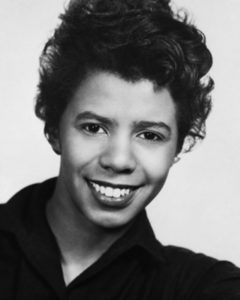Humanist Profile: Lorraine Hansberry
 Lorraine Hansberry
Lorraine Hansberry February is Black History Month in the United States and Canada. In commemoration we bring you the third in a four-part series highlighting fascinating and influential black humanists. Part one profiled writer and activist Ijeoma Oluo, and part two profiled James Baldwin.
“It’s all a matter of ideas, and God is just one idea I don’t accept. … I am not going out and be immoral or commit crimes because I don’t believe in God. I don’t even think about it. It’s just that I get tired of Him getting credit for all the things the human race achieves through its own stubborn effort.”
—Beneatha Younger, the semi-autobiographical character in Lorraine Hansberry’s play, A Raisin in the Sun
American playwright and activist Lorraine Vivian Hansberry was born on May 19, 1930, in Chicago, Illinois, the youngest of four children. Her mother, Nannie Louise, was a teacher and her father, Carl Augustus, worked in real estate. Her parents were major supporters of the Urban League and the NAACP in Chicago. In 1938 they bought a house in what was then an exclusively white neighborhood on the south side of Chicago. Residents tried to impose a racially restrictive covenant to bar the Hansberrys from living there, and the case culminated in a 1940 U.S. Supreme Court decision that found the previous covenant contestable.
Lorraine Hansberry graduated from Chicago’s Englewood High School in 1948 and then enrolled at the University of Wisconsin-Madison to study painting, immediately working to integrate the dormitory where she lived. That same year she also worked on the presidential campaign of Progressive Party candidate Henry A. Wallace.
In 1950 Hansberry moved to New York City to study writing at The New School, and in 1951 moved to Harlem and took a job at the black progressive newspaper Freedom, working alongside W. E. B. Du Bois, Paul Robeson, and others. She covered the civil rights movement in the United States, but also wrote about freedom movements in other parts of the world. In 1953 she married Robert Nemiroff, a Jewish songwriter she met at an antidiscrimination rally. Although they divorced in 1964—it’s widely thought that Hansberry was a closeted lesbian—they continued to work together closely and Nemiroff was responsible for making her works more widely known after she died.
In the mid-1950s Hansberry wrote a play about a struggling black family living in Chicago (partly based on her family’s experiences) called The Crystal Stair. It was later renamed A Raisin in the Sun (echoing a line from the Langston Hughes poem “Montage of a Dream Deferred”) and opened in 1959 to great success. It was the first Broadway play produced by a black woman and Hansberry was the first black playwright and the youngest American to win a New York Critics’ Circle award. The 1961 film version, with Sidney Poitier reprising his theatrical role, was also widely acclaimed.
In an unaired 1959 interview (audio of which is posted at PBS Learning Media), Mike Wallace suggests to Hansberry that the acclaim and awards buzz for her play “may be a sentimental reaction to the fact that you are negro and one of the few negroes ever to write a good Broadway play.” Sighing, Hansberry responds: “I image that if I were given the award because they wanted to give it to a negro that it would be the first time in the history of this country that anyone had ever been given anything for being a negro. I don’t think it’s a very complimentary assessment of an honest piece of work.”
An atheist, Hansberry was foremost a passionate civil rights activist. In a 1980 paper in the journal Melus titled, “Hansberry’s Drama: Commitment amid Complexity,” Steven R. Carter recounts her saying that, tactically, blacks “must harass, debate, petition, give money to court struggles, sit-in, lie-down, strike, boycott, sing hymns, pray on steps—and shoot from their windows when the racists come cruising through their communities.” In a 1964 town hall debate Carter describes Hansberry taking issue with white liberals who balked at civil disobedience. While acknowledging the participation of whites in the civil rights struggle, she urged, “stop being a liberal and become an American radical.”
Lorraine Hansberry was diagnosed with pancreatic cancer in 1964 and died at the age of thirty-four on January 12, 1965.
